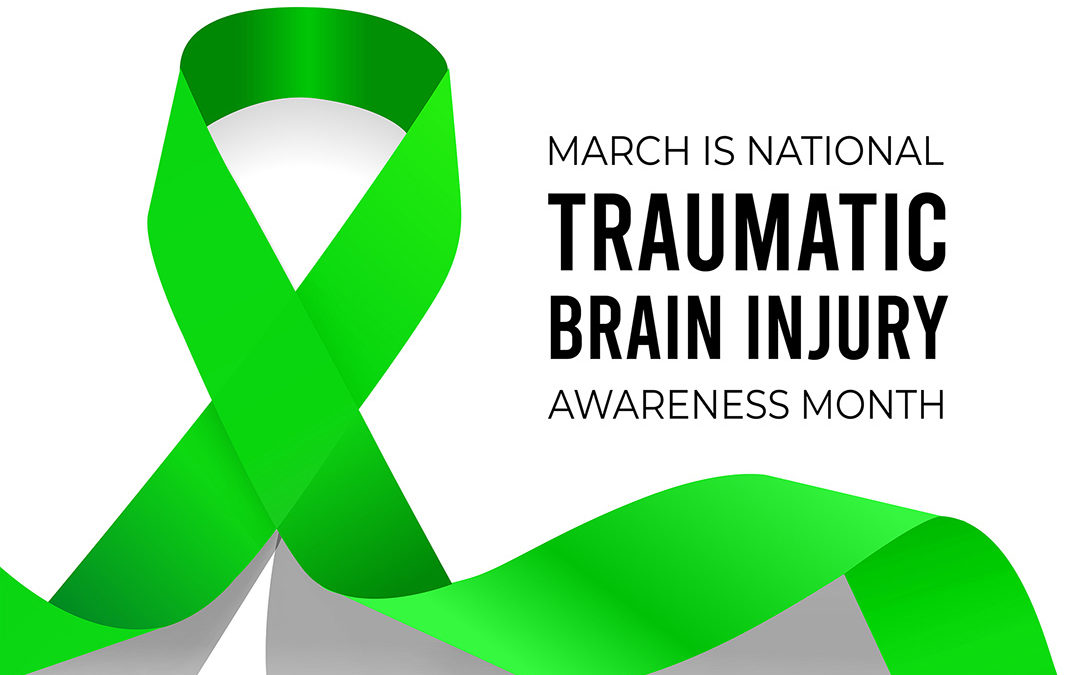Every 9 seconds, someone in the United States sustains a brain injury. March is Brain Injury Awareness Month, and while we focus on raising awareness about brain injuries, we also need to talk about grief: an overlooked brain injury symptom. Often unaddressed by doctors, patients, and caregivers, grief over the loss of who you were before your brain injury is crucial to your recovery.
For me, March changed my life forever. I was in a 60-mph head-on auto accident, and four months later, I was having brain surgery which left a hole in my left frontal lobe. The doctors told me I would never walk or talk again. I was devastated. Before the accident, I was a successful health practitioner, managing a private practice. Because of my brain injury, I eventually lost my practice, my marriage failed, and I struggled to mother my three children under age 10. My life as I knew it was over. I spent many years grieving and mourning the losses, especially the loss of self.
Grieving the Loss of Self
Most people relate grief to the loss of a loved one. However, it can occur after any life-changing event, such as a brain injury. If you cannot live your life as you did before an injury, you may grieve the loss of the person you used to be. Not only is this natural, but it is a necessary part of recovery.
Along with the typical symptoms, it is common to experience grief after a brain injury. Grieving the loss of your former self is often misunderstood or overlooked altogether. It is a realization that the one person you could always count on, yourself, is no longer the person you see in the mirror. After the accident, I rebuilt my life, albeit a new life. Along with bringing awareness to “grieving the loss of self,” I want to offer hope and help to other brain injury survivors.
Grief, PCS & PTSD – What am I experiencing?
A brain injury survivor will likely suffer from one, if not all of the following conditions: grief, post-concussion syndrome (PCS), and/or post-traumatic stress disorder (PTSD), depending on the circumstances of the event. The symptoms of these three conditions are similar and can overlap, making it challenging to properly diagnose and treat. The process of grieving the loss of self that follows a brain Injury is often confused with those of PCS or PTSD.
- Grief: The deep mental pain that comes from a loss. Grief over the loss of self is something almost every brain-injured person will go through. However, the recognition of grief as a possible cause of post-injury behavior has eluded many physicians and mental-health professionals as well as survivors themselves.
- Post-Concussion Syndrome (PCS): Ongoing symptoms following a brain injury that don’t resolve within a few weeks, are generally classified as Post-Concussion Syndrome (PCS).
- Post-Traumatic Stress Disorder (PTSD): Post-Traumatic Stress Disorder (PTSD) is a psychological issue that happens when someone experiences a traumatic event. Sometimes, the event that causes the brain also causes PTSD.
Help and Hope: There is a Way!®
The reality that you may never completely recover is painful to accept. Grieving and recovery take time, but once you, your family, and your doctors realize that grieving needs to be part of your road to recovery, then the healing process can begin.
You can bridge the gap between who you were before your brain injury and who you are now. And hopefully you’ll realize that you still have purpose, you still have strength and you can build a new life that is healthy, happy and fulfilling.
- From the Brain Injury Association of Ohio Annual Conference (Keynote speaker 1999). Length: 40 seconds. Size: 876K. Dr. Diane® speaks about her own brain injury.
Raising Awareness
There is still much ground to be covered in grief as it relates to brain injuries within the medical community. Overlooking the idea of grieving after a brain injury can slow and sometimes stall the healing process. Even the most highly-trained doctors may lack knowledge about brain injuries. Therefore, it is essential to raise awareness and find the right professional who can support your recovery journey and truly understand your sadness and mourning. Tell your doctor about the grief you are experiencing.
Other grief topics: Symptoms of Healthy Grieving, Grief Therapy.
“May your spirit remain strong and through your grief may you come to honor and love your new self.” – Dr. Diane®.



